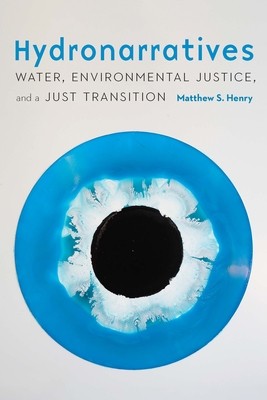
- We will send in 10–14 business days.
- Author: Matthew S Henry
- Publisher: University of Nebraska Press
- Year: 2023
- Pages: 232
- ISBN-10: 1496227891
- ISBN-13: 9781496227898
- Format: 15.2 x 22.9 x 1.8 cm, kieti viršeliai
- Language: English
- SAVE -10% with code: EXTRA
Reviews
Description
The story of water in the United States is one of ecosystemic disruption and social injustice. From the Standing Rock Indian Reservation and Flint, Michigan, to the Appalachian coal and gas fields and the Gulf Coast, low-income communities, Indigenous communities, and communities of color face the disproportionate effects of floods, droughts, sea level rise, and water contamination.
In Hydronarratives Matthew S. Henry examines cultural representations that imagine a just transition, a concept rooted in the U.S. labor and environmental justice movements to describe an alternative economic paradigm predicated on sustainability, economic and social equity, and climate resilience. Focused on regions of water insecurity, from central Arizona to central Appalachia, Henry explores how writers, artists, and activists have creatively responded to intensifying water crises in the United States and argues that narrative and storytelling are critical to environmental and social justice advocacy. By drawing on a wide and comprehensive range of narrative texts, historical documentation, policy papers, and literary and cultural scholarship, Henry presents a timely project that examines the social movement, just transition, and the logic of the Green New Deal, in addition to contemporary visions of environmental justice.
Matthew S. Henry is an assistant instructional professor in the Honors College and an affiliate in the School of Energy Resources at the University of Wyoming.
EXTRA 10 % discount with code: EXTRA
The promotion ends in 21d.14:55:00
The discount code is valid when purchasing from 10 €. Discounts do not stack.
- Author: Matthew S Henry
- Publisher: University of Nebraska Press
- Year: 2023
- Pages: 232
- ISBN-10: 1496227891
- ISBN-13: 9781496227898
- Format: 15.2 x 22.9 x 1.8 cm, kieti viršeliai
- Language: English English
The story of water in the United States is one of ecosystemic disruption and social injustice. From the Standing Rock Indian Reservation and Flint, Michigan, to the Appalachian coal and gas fields and the Gulf Coast, low-income communities, Indigenous communities, and communities of color face the disproportionate effects of floods, droughts, sea level rise, and water contamination.
In Hydronarratives Matthew S. Henry examines cultural representations that imagine a just transition, a concept rooted in the U.S. labor and environmental justice movements to describe an alternative economic paradigm predicated on sustainability, economic and social equity, and climate resilience. Focused on regions of water insecurity, from central Arizona to central Appalachia, Henry explores how writers, artists, and activists have creatively responded to intensifying water crises in the United States and argues that narrative and storytelling are critical to environmental and social justice advocacy. By drawing on a wide and comprehensive range of narrative texts, historical documentation, policy papers, and literary and cultural scholarship, Henry presents a timely project that examines the social movement, just transition, and the logic of the Green New Deal, in addition to contemporary visions of environmental justice.
Matthew S. Henry is an assistant instructional professor in the Honors College and an affiliate in the School of Energy Resources at the University of Wyoming.


Reviews